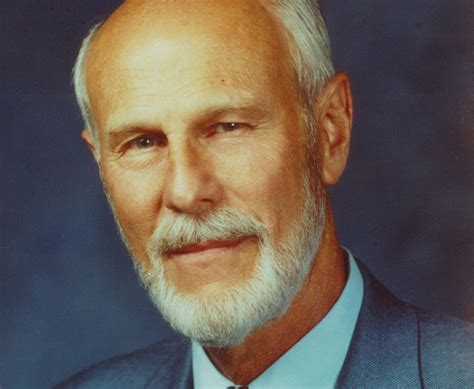A Quote by Tara Stiles
The mere acknowledgment that 'God is watching' can act as a trap, fueling bad behavior, corruption, and guilt, all remedied by God's forgiveness. No personal responsibility is needed - someone on the outside sees whatever we're doing and makes it all OK.
Related Quotes
Forgiving someone does not mean you condone their behavior. The act of forgiveness takes place in your own mind. It really has nothing to do with the other person. The reality of true forgiveness lies in setting ourselves free from holding on to the pain. It is simply an act of releasing yourself from the negative energy.
To reverence the impersonal creation instead of the personal God who created us is a perversion designed for escaping moral accountability to the Creator. God indicts those who worship the creation instead of its Creator (Rom 1:18-23); and warns of the corruption of morals and behavior which results.
If a hungry lion suddenly appeared, you'd be terrified. So terrified you'd probably run away. Great, fear's doing its job. But you might get so afraid that you lock up and can't move. This would be very bad. Guilt's the same. It can prevent you from fixing the situation, make you feel so bad you can't function at 100% and even lead to more guilt-provoking bad behavior.
Your worst days are never so bad that you are beyond the reach of God's grace. And your best days are never so good that you are beyond the need of God's grace.Pharisee-type believers unconsciously think they have earned God's blessing through their behavior. Guilt-laden believers are quite sure they have forfeited God's blessing through their lack of discipline or their disobedience. Both have forgotten the meaning of grace because they have moved away from the gospel and have slipped into a performance relationship with God.
We need to ask God for forgiveness and do all we can to correct whatever harm our actions may have caused. Repentance means a change of mind and heart—we stop doing things that are wrong, and we start doing things that are right. It brings us a fresh attitude toward God, oneself, and life in general.
The forgiveness of God is gratuitous liberation from guilt. Paradoxically, the conviction of personal sinfulness becomes the occasion of encounter with the merciful love of the redeeming God. "There will be more rejoicing in heaven over one sinner repenting..." (Luke 15:7). In his brokenness, the repentant prodigal knew an intimacy with his father that his sinless, self-righteous brother would never know.
The Bible says that God gave this earth to the sons of men ... and when [Adam] turned and gave that dominion to Satan, look where it left God. If left Him on the outside looking in ... He had no legal right to do anything about it, did He? ... He had injected Himself illegally into the earth -- what Satan had intended for Him to do was to fall for it -- pull off an illegal act and turn the light off in God, and subordinate God to himself ... He intended to get God into such a trap that He couldn't get out.
Jesus Himself has already paid the price for your sins, so stop condemning yourself! Today, when you look into the mirror, what do you see? Do you see yourself trapped in all your failings, mistakes, and sins? Or do you see what God sees? My dear friend, when God sees you today, He sees Jesus. Use your eyes of faith and believe that as Jesus is, so are you. In God’s eyes, you are righteous, you are favored, you are blessed, and you are healed. You are freed from all sin, all pangs of guilt, all forms of condemnation, and every bondage of addiction!
Surprisingly, it's forgiveness, not guilt, that increases accountability. Researchers have found that taking a self-compassionate point of view on a personal failure makes people more likely to take personal responsibility for the failure than when they take a self-critical point of view. They also are more willing to receive feedback and advice from others, and more likely to learn from the experience.
Fasting with a pure heart and motives, I have discovered, brings personal revival and adds power to our prayers. Personal revival occurs because fasting is an act of humility. Fasting gives opportunity for deeper humility as we recognize our sins, repent, receive God's forgiveness, and experience His cleansing of our soul and spirit. Fasting also demonstrates our love for God and our full confidence in His faithfulness.







































